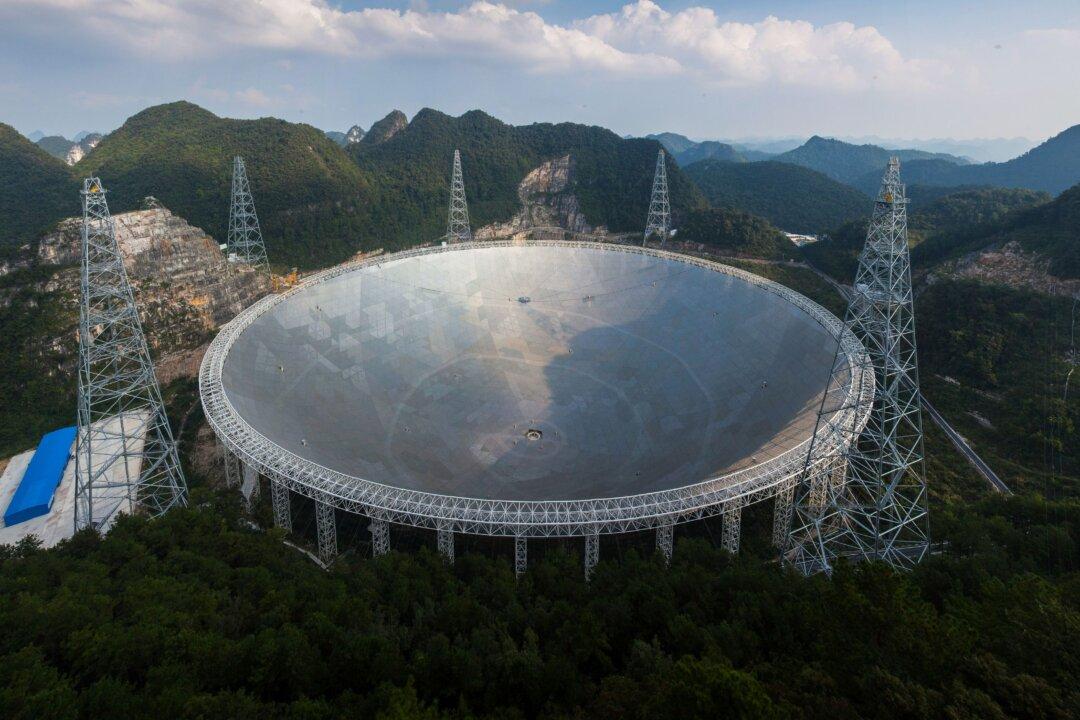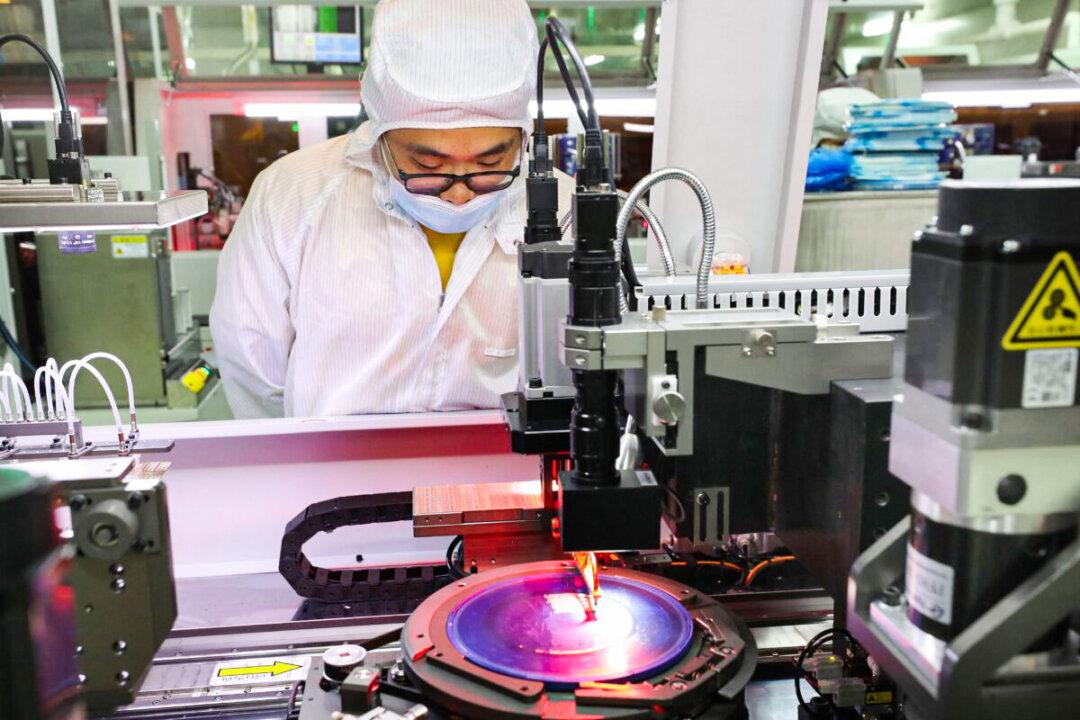Beijing has been expanding its space exploration to search for extraterrestrials, which one Chinese astronomer once said is one of the ultimate goals of such explorations.
“Sky Eye” is a single-dish 500-meter aperture spherical radio telescope (FAST) with a receiving area of around 30 football fields. It was completed in September 2016 in Guiyang, Guizhou, a city in southwest China.





